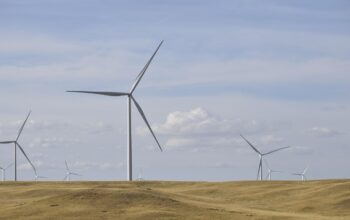Introduction to Sustainable Tech
In today’s fast-paced technological landscape, environmental sustainability isn’t just a buzzword; it’s a crucial goal. As we delve into the world of programming languages, we find that some technologies are paving the way for a greener future. Let’s explore how Python, along with a few other languages, is leading the charge in creating sustainable solutions.
Python: The Green Leader
Python stands out for its versatile nature and ease of use. It’s a favorite among developers due to its simple syntax and extensive libraries. For environmental projects, Python is particularly useful for tasks such as data analysis, predictive modeling, and even AI applications. For instance, Python is used in climate modeling to simulate and predict future weather patterns and their impact on ecosystems. Such models can help scientists understand the effects of climate change and develop strategies to mitigate them.
**Example Uses:***
- Data Analysis: Python’s libraries like Pandas and NumPy are ideal for analyzing large environmental datasets, helping to identify trends and patterns that inform sustainable practices.
- AI and Machine Learning: Libraries like TensorFlow and PyTorch enable developers to build AI models that optimize resource usage and predict environmental phenomena.
Other Trending Languages
While Python leads the way, other languages are also contributing to sustainability efforts:
1. R R is widely used in statistical analysis and data visualization, making it a strong tool for environmental research. It helps in understanding and communicating complex environmental data more effectively.
Example Uses:
- Statistical Modeling: R is used to create detailed statistical models that help understand environmental changes over time.
2. JavaScript JavaScript isn’t typically thought of as an environmental language, but it can be used for building web applications that promote sustainable living. It’s often used in applications that help track carbon footprints or encourage eco-friendly behaviors.
Example Uses:
- Web Development: JavaScript is used to build interactive web pages that raise awareness about environmental issues and provide tools for(private citizens to monitor their environmental impact).
3. Julia Julia is a newcomer with a strong potential for high-performance computing, which is essential for complex environmental simulations. It’s faster than many languages and can handle large-scale environmental data processing efficiently.
Example Uses:
- High-Performance Computing: Julia’s speed makes it ideal for simulating complex environmental systems and phenomena.
4. C++ C++ is a versatile and powerful language used in many hardware and software applications related to sustainability, such as optimizing energy usage in devices and systems.
Example Uses:
- Embedded Systems: C++ is often used in embedded systems that control and optimize energy consumption in buildings and devices.
Real-World Impact
The use of these programming languages in real-world projects shows us how technology can contribute to sustainability:
- Critical Path Software uses AI for mainframe optimization, reducing energy consumption and lowering carbon footprints in data centers.
- Ecological monitoring systems employ Python for data analysis, helping to understand biodiversity and inform conservation efforts.
Conclusion
As we continue to innovate and rely on technology, choosing programming languages that support environmental sustainability is crucial. Languages like Python, R, JavaScript, Julia, and C++ are leading the way by providing developers with the tools they need to create solutions for a greener future.
References:
- https://en.wikipedia.org/wiki/Environmental_impact_of_artificial_intelligence
- https://www.informationweek.com/sustainability/4-big-ai-sustainability-prospects-and-one-big-problem
- https://onlinelibrary.wiley.com/doi/full/10.1155/jonm/6145329
- https://turbotune.com/sustainability/
- https://www.stxnext.com/blog/top-python-apps
- https://www.revisor.mn.gov/bills/text.php?version=latest&number=SF2077
- https://www.upgrad.com/blog/python-applications-in-real-world/
- https://www.montana.edu/usp/research_celebration/2025%20SRC%20Program%20Updated.pdf



